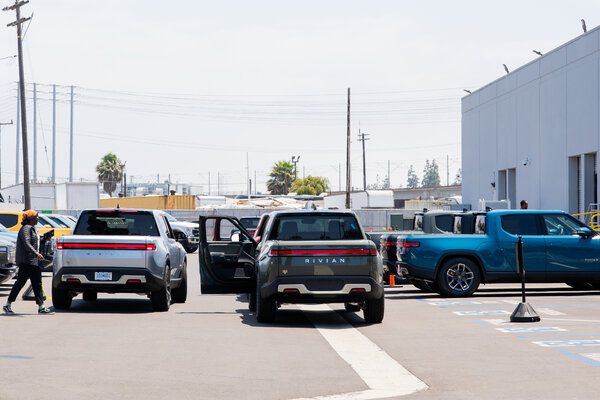What to Know About California’s Ban on New Gasoline-Powered Cars
By 2035, California shoppers looking for new vehicles will have to buy electric.
California made history late last week when its regulators approved an ambitious plan to phase out the sale of new gasoline-powered vehicles in the state.
While governments around the world have tried to incentivize consumers to purchase electric vehicles and encourage automakers to produce more of them, the Golden State opted for a far more stringent approach.
The California Air Resources Board on Thursday signed off on a sweeping plan requiring that by 2035, all new passenger cars and light trucks sold in the state be electric vehicles or other emissions-free models.
Given that California is the nation’s largest auto market and that other states often follow our lead, the new rule could become “one of the world’s most important climate change policies,”my colleagues Coral Davenport, Lisa Friedman and Brad Plumer explained.
“This regulation will set the global high-water mark for the accelerated transition to electric vehicles,” Drew Kodjak, executive director of the International Council on Clean Transportation, a research organization, told my colleagues.
Today I’ll walk you through the details of California’s target and how it could play out here and across the country.
What exactly are California regulators calling for?
Currently, about 16 percent of all new car sales in California are zero-emission vehicles. The new rule requires that 35 percent of new passenger cars and light trucks sold in California be either zero-emission, plug-in hybrid or hydrogen-powered models by 2026.
Those benchmarks rise to 68 percent in 2030, and 100 percent in 2035.
The rule doesn’t force California’s car shoppers to buy these vehicles, but instead creates fines for automakers who fail to comply with the targets. The penalties are high enough that experts believe automakers will go along with the new mandates, as my colleagues recently explained in an article about the ban’s biggest challenges.
“California is good at enforcing its rules,” Dan Becker, director of the Safe Climate Transport Campaign at the Center for Biological Diversity, told them. “Companies at their peril violate those rules.”
Will I have to give up my car?
The rules apply only to the sales of new cars, so you can keep your gas-guzzler. You can also continue to buy or sell used gasoline-powered cars after 2035.
What impact will the new rules have?
Currently, transportation is the single largest source of emissions in California and accounts for about 40 percent of the state’s greenhouse gas emissions.
State regulators estimate that the new rules will reduce greenhouse gas emissions from passenger vehicles by more than 50 percent in 2040 from the levels that were expected without the policy. That amounts to eliminating 395 million metric tons of greenhouse gas emissions over that time period, or the equivalent of burning 915 million barrels of oil, according to Liane Randolph, chairwoman of the California Air Resources Board.
Those benefits could spread if other governments are inspired by California’s bold move. More on that below.
Will other states follow suit?
Under the federal Clean Air Act, California is allowed to set tougher emissions standardsthan the federal government. In recent years, more than a dozen other states (including New York, Massachusetts and Washington) have followed California’s rules too.
Together with California, these states — many of which have already signaled they will also adopt the 2035 ban on internal combustion engines — account for one third of the American auto market.
“This is huge,” said Margo Oge, an electric vehicles expert who led the Environmental Protection Agency’s transportation emissions program under Presidents Bill Clinton, George W. Bush and Barack Obama. As additional states put in place their own versions of these policies, “they will drive the market, and drive innovation,” she told The Times.
In the words of Gov. Gavin Newsom, the ban is “one of the most significant steps to the elimination of the tailpipe as we know it.”
“Our kids are going to act like it’s a rotary phone, or changing the channel on a television,” Newsom said in an interview with my colleagues.
Medio: The New York Times
